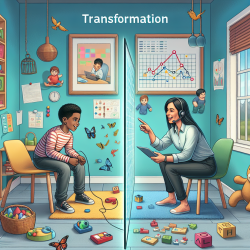Introduction
The recent pandemic has highlighted the intricate relationship between health and housing, as explored in Jennifer K. Wagner's research article, "Health, Housing, and ‘Direct Threats’ during a Pandemic." This intersection is crucial for speech-language pathologists (SLPs) who provide online therapy services, such as those at TinyEYE, to understand and incorporate into their practice. By examining the outcomes of this research, practitioners can enhance their skills and improve outcomes for children, particularly in the context of online therapy services.
Understanding the Research
Wagner's research delves into the challenges faced by healthcare and housing providers during the pandemic, emphasizing the need for a holistic approach to health and housing. The study underscores that adequate housing is a human right and a critical component of public health. It also highlights the legal complexities surrounding fair housing laws and the "direct threat" exemption, which could affect housing stability during health crises.
Implications for Speech-Language Pathology
SLPs can draw several insights from this research to enhance their practice:
- Holistic Understanding: Recognize the broader social determinants of health, such as housing, that affect children's communication and learning environments.
- Advocacy: Advocate for policies that ensure stable housing for families, as housing insecurity can impact children's cognitive and language development.
- Interdisciplinary Collaboration: Work with other professionals, including educators and social workers, to address the comprehensive needs of children and their families.
Encouraging Further Research
While Wagner's study provides a foundational understanding, SLPs are encouraged to conduct further research into how housing stability directly impacts communication disorders and therapy outcomes. This could involve exploring the effects of environmental stressors on language acquisition and the efficacy of online therapy in diverse living conditions.
Conclusion
By integrating insights from health and housing research, SLPs can make data-driven decisions that enhance therapy outcomes for children. Understanding the broader context in which children live and learn is essential for effective intervention. For those interested in delving deeper into the original research, please follow this link: Health, housing, and ‘direct threats’ during a pandemic.










